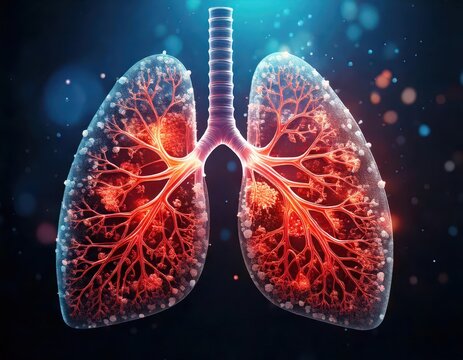Understanding Chest Infections: Causes, Symptoms, Prevention, and Treatment
Overview of Chest Infections
Chest infections are common respiratory illnesses, especially prevalent during the colder months of autumn and winter. While many chest infections are mild and resolve on their own, some can become severe or life-threatening if not addressed promptly.
Signs and Symptoms of a Chest Infection
The most common symptoms associated with chest infections include:
- Persistent Cough: This may produce yellow, green, or blood-stained phlegm.
- Breathlessness: Rapid, shallow breathing or difficulty catching your breath.
- Wheezing and Chest Pain: Discomfort or tightness in the chest, which can worsen with coughing or deep breaths.
- High Temperature (Fever): A rapid heartbeat often accompanies fever.
- General Illness Symptoms: Fatigue, headaches, sweating, loss of appetite, muscle and joint pain, confusion, and disorientation.
Causes of Chest Infections
Chest infections occur due to an infection of the lungs or airways. The two main types of chest infections are:
- Bronchitis: Typically caused by viruses.
- Pneumonia: Usually caused by bacterial infections.
Chest infections are contagious, often spreading through droplets released when an infected person coughs or sneezes. The bacteria or virus can be inhaled by others or transferred through contact with contaminated surfaces.
High-Risk Groups for Severe Chest Infections
Certain populations are more susceptible to serious chest infections:
- Infants, young children, and elderly individuals.
- People who smoke.
- Pregnant women.
- Individuals with weakened immune systems (e.g., from illness, chemotherapy, or high-dose steroids).
- Those with chronic conditions like asthma, COPD, diabetes, heart or kidney disease.
Managing and Treating Chest Infections at Home
Self-Care Tips for Mild Chest Infections
Most chest infections are mild and can be treated at home. Here are some self-care strategies:
- Rest: Ensure you get plenty of rest to support your immune system.
- Stay Hydrated: Drink fluids to loosen mucus in the lungs and prevent dehydration.
- Pain Relief: Use paracetamol or ibuprofen to manage fever, headaches, and muscle aches.
- Soothe Your Throat: Try warm drinks with honey and lemon to alleviate a sore throat caused by persistent coughing.
- Sleep Position: Elevate your head with extra pillows to make breathing easier while resting.
- Avoid Smoking: If you smoke, stop immediately to help your lungs recover faster.
Note: Cough medicines are generally not recommended as they have limited effectiveness. Coughing helps clear phlegm from the lungs and speeds up recovery.
When to Contact Your GP
It’s important to seek medical advice if:
- Your symptoms worsen or don’t improve.
- You experience severe chest pain, confusion, or difficulty breathing.
- You cough up blood or discolored phlegm.
- Your skin or lips develop a blue tint (cyanosis).
- You’re pregnant, over 65, or have a long-term health condition.
Your GP may conduct a physical examination and, if necessary, order tests like chest X-rays, blood tests, or a sample of your phlegm.
Preventing Chest Infections
Lifestyle Changes to Reduce Risk
- Quit Smoking: Smoking damages your lungs and weakens your immune response to infections. Stopping smoking can significantly reduce your risk of chest infections.
- Tip: Seek support from quit-smoking services, such as the NHS Quit Your Way Scotland.
- Practice Good Hygiene: Wash your hands regularly and cover your mouth when coughing or sneezing to prevent spreading infections.
- Limit Alcohol Consumption: Excessive alcohol intake can impair lung function and weaken immune defences.
- The NHS recommends not drinking more than 14 units of alcohol per week and spreading these units over several days.
- Healthy Diet: Consuming a balanced diet rich in nutrients strengthens the immune system and helps ward off infections.
Vaccinations
If you’re at high risk of chest infections, your GP may recommend vaccinations against flu and pneumococcal infections. Vaccinations are especially important for:
- Babies and young children.
- Pregnant women (flu jab).
- Individuals over 65 years of age.
- People with chronic illnesses or weakened immune systems.
Additional Tips for Living with and Recovering from Chest Infections
Breathing Exercises
Practice breathing exercises to expand your lungs and clear mucus:
- Sit upright, take a deep breath, and hold it for 3-4 seconds.
- Exhale slowly.
- Repeat three times, followed by a series of “huffs” (short, forceful exhalations).
Maintaining Activity
While it’s important to rest, avoid prolonged periods of inactivity. Gradually resume light activities and stay mobile to aid your recovery.
Seek Support
Recovery can be challenging, especially if you experience persistent symptoms. Reach out to friends, family, or healthcare professionals for support and guidance.







